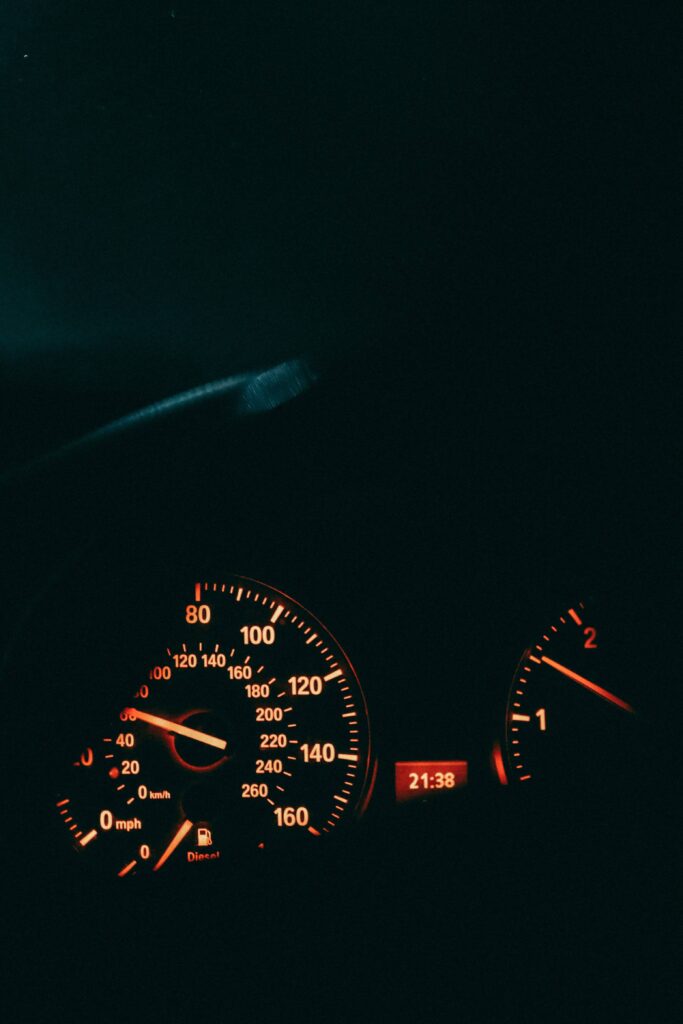What Does That Car Squeak Really Mean?
That repetitive, high-pitched noise is more than just annoying—it’s your car trying to tell you something important. If you’ve been searching “why is my car squeaking,” know that you’re dealing with a common issue that ranges from a minor inconvenience to a serious safety hazard. As Georgia auto experts, we know that squeaks are almost never normal and should never be ignored.
Squeaks are typically caused by friction between two parts that should be moving smoothly or by a component warning you it’s worn out. To help you diagnose the noise, we’ve broken down the three most likely sources for that unwanted sound: the brakes, the suspension, and the engine bay. Knowing when the squeak occurs is the first step in figuring out what’s causing it.
Squealing When Braking? The Most Common Cause of Car Squeaking
If the squeaking noise happens specifically when you press the brake pedal, congratulations—you’ve already narrowed down the problem to your braking system. While the fix may require service, diagnosing this particular type of squeal is often straightforward.
The Brake Pad Wear Indicator
The most common reason for a high-pitched squeal is your brake pads telling you they’re worn out. Most modern brake pads come equipped with tiny, built-in wear indicators—small metal tabs. Once the brake pad material wears down to a dangerously low level, this metal tab scrapes against the brake rotor, creating a deliberate, loud, high-pitched squeal.
This sound is your vehicle’s safety mechanism, signaling that it is time for new pads. Ignoring this warning can lead to metal-on-metal grinding, which severely damages your rotors and dramatically increases the cost of Brake Repair.
Rotor Rust or Contamination
Sometimes, the squeak is temporary. If you hear a light squeal or grind immediately after the car has been sitting overnight, especially following rain or high humidity, it’s often just surface rust on the rotors. If the squeak persists beyond the first minute of driving, the issue is likely more severe, possibly due to oil, dirt, or brake fluid contamination.
Groaning Over Bumps: Car Squeaking from Your Suspension System
If your car stays quiet while sitting still but starts to make noise whenever you drive over a speed bump, a pothole, or corner sharply, the squeak is almost certainly originating from your suspension system.
Worn or Dry Suspension Bushings
The majority of squeaks that happen when the car moves up and down are caused by bushings. These small, usually rubber components, can dry out, crack, or compress over time. When they lose their flexibility and lubrication, the metal parts they are supposed to isolate rub against each other, creating that tell-tale groan or squeal with every movement of the wheel.
Failing Ball Joints or Tie Rod Ends
The squeak can also be a sign of a more serious mechanical failure. Ball joints and tie rod ends are critical components for steering. When the protective boot around them tears, the internal grease escapes, and dirt and moisture get in. This contamination leads to internal friction and rust, causing a loud metal-on-metal groan or squeak when the suspension compresses. Since these parts are crucial for steering control and safety, any squeak accompanied by a feeling of looseness or clunking should be addressed immediately with professional Suspension Services.
High-Pitched Squeals Under the Hood (Serpentine Belt Squeak)
The third common source of squealing is the most distinct because it is directly related to the engine running, not the movement of the car. If you hear a high-pitched, consistent squeal that starts when you turn the ignition (and is often louder when the engine is cold or in humid conditions), the problem is most likely belt-related.
The serpentine belt (or drive belt) transfers power to vital accessories like the alternator and power steering pump. When this belt gets old, it can become glazed, cracked, or simply lose the proper tension necessary to grip the pulleys. A loose or worn belt will slip against the pulley, generating intense friction that translates into a loud, constant squealing sound. Ignoring a squealing belt is risky because if the belt breaks, your car will immediately lose power and could overheat.
Stop the Noise: Why You Need Professional Car Squeaking Diagnosis
Whether the noise is a persistent squeal when braking, a groan over speed bumps, or a whine from under the hood, a car squeaking is always a sign that friction is occurring where it shouldn’t. While diagnosing the source of the noise is a great first step, remember that these sounds often point to components that have reached the end of their service life.
Ignoring a squeak can quickly turn a relatively inexpensive fix into a major, costly repair or, more importantly, a safety hazard. If you’ve identified the conditions that cause the squeak but aren’t comfortable checking the components yourself, it’s time to call in the professionals.
For accurate diagnosis of tricky, intermittent noises, or for the replacement of any worn parts, trust the Georgia auto experts. Don’t let your car’s complaints go unheard. For reliable service, from Brake Repair to Suspension Services, trust the team at MDP Diesel. Schedule your complete vehicle inspection with us today!

